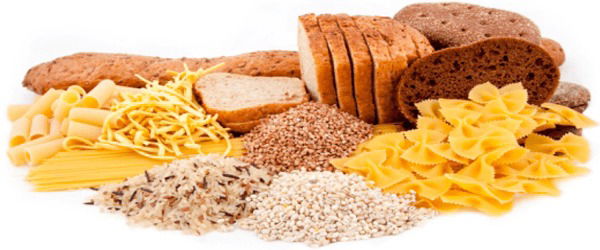SPORTS NUTRITION #1 : CARBOHYDRATES
In my earlier blog on Energy Balance, we discussed calories in vs calories out and its effect on total energy balance, which means how many calories are burned compared to how many calories enter our bodies. Today, I will provide you with a quick understanding about the importance of macro-nutrients intake, with a specific focus on carbohydrates (CHOs).

Glucose is transported in the blood to provide energy while glycogen serves as an energy reserve in tissues. The typical athlete with full CHO stores possesses about 500 grams of glucose, of which 5 grams are released in circulation, 400 grams are stored as muscle glycogen and the remaining 90-95 grams are stored as liver glycogen. CHO restriction leads to rapid weight loss and can contribute to dehydration, as each gram of glycogen requires 3 grams of water for storage. With glycogen use, water is released into circulation and becomes urine or sweat, so glycogen depletion over 3 days can result in a 3% loss in bodyweight and increases the risk of heat related illness.
During training and competition, muscle glycogen (400 grams) does not directly replenish blood glucose. The 90 grams of liver glycogen must support the energy needs of tissues during exercise. 1 gram of glycogen is used during every minute of exercise. So after 90 minutes, the CHO supplies become a limiting factor. That’s why CHO intake is needed during long duration exercises. Therefore, in order to replace and maintain glycogen stores, and be able to exercise for long durations, adequate CHO intake must be considered.
The following table provides a summary of recommended CHO intake ranges:

These guidelines are very important for optimal CHO intake among athletes. By way of example, you’ll need to consume 7-10 grams of CHOs per kilo of body-weight in the form of starch, glycogen and fiber before a moderate to heavy workout (60-65% of total calories). These CHOs are called polysaccharides. Simple CHOs are ideal for pre, during and post-training competition energy, and are found in foods such as fruits, milk and milk products, as well as processed and refined sugars such as candy, table sugars, syrups and soft drinks.
Approximately 30-60 grams of CHOs/hour must be consumed during prolonged exercises (i.e. greater than 90 minutes).
A 3:1 CHO - protein beverage (60g CHO / 20g Protein for a person weighing around 60 kilos) is recommended within 30-45 minutes following training or competition. Finally, all calories consumed during a workout should be replaced within 3-5 hours.



